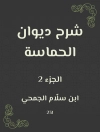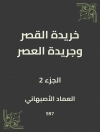In ‘Comus, ‘ John Milton explores the themes of virtue, temptation, and the power of reason through a dramatic poem that highlights the tension between innocence and experience. Written as a masque, the work exemplifies Milton’s rich poetic style, characterized by intricate verse and vivid imagery, which immerses readers in a world where the spiritual and the sensual collide. The verses weave classical references with contemporary moral dilemmas, reflecting the influence of the Renaissance humanism that shaped the period’s intellectual landscape. The allegorical figures represent the struggle between the forces of light and dark as they vie for the soul of the virtuous Lady, making it a poignant commentary on the human condition and societal values of the time. John Milton, poet and political thinker of the 17th century, penned ‘Comus’ during a period of personal and political upheaval, steeped in the philosophical undercurrents of Puritanism and humanism. His experiences with censorship and his advocacy for freedom of expression resonate throughout the work, revealing his conviction in the triumph of reason and virtue over depravity—a reflection of his own life’s battles against tyranny. Milton’s extensive classical education and engagement with contemporary political discourse further infuse the masque with depth and intellectual rigor. Readers seeking a profound exploration of morality and ethics through the medium of poetry will find ‘Comus’ to be an essential addition to their literary repertoire. Milton’s masterful command of language and thematic complexity invites deep contemplation and makes it not just a cautionary tale, but an enduring work that continues to resonate with modern sensibilities. This dramatic poem stands as a testament to the interplay between art and the philosophical struggles of humanity, rendering it essential reading for scholars and enthusiasts alike.
A propos de l’auteur
John Milton (1608–1674) was an esteemed English poet, polemicist, and civil servant for the Commonwealth of England. Renowned for his rich and impressive command of the English language, Milton is best known for his epic poem ‘Paradise Lost’, a landmark in English literature that secured his place as one of the greatest poets of his time. A man of letters, Milton also authored ‘Paradise Regained’, a sequel to his former masterpiece, and ‘Samson Agonistes’, a tragic closet drama, both of which further extended his influence on English literature. His early poem ‘Milton’s Comus’, a masque, exhibits his preoccupation with themes of temptation, virtue, and the human condition, elements also present in his later works. Milton’s writing is characterized by its sophisticated structure, eloquent diction, and deep exploration of theology and morality, reflecting the socio-political and religious turmoil of the 17th century. Despite suffering complete blindness in the latter half of his life, Milton continued to produce works that sustained his literary stature posthumously, his style and mastery influencing countless writers and poets who followed in the centuries after his death.












